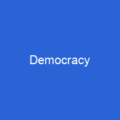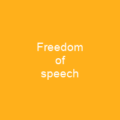Freedom of the Press: The Pillar of Democracy
Imagine a world where information flows freely, unhampered by oppressive regimes or corporate interests. That’s what freedom of the press is all about. It’s not just about printing newspapers; it’s about ensuring that every voice has a chance to be heard and every truth can be told. This fundamental principle allows us to question authority, hold those in power accountable, and ensure transparency in governance.
The Universal Declaration of Human Rights
According to the Universal Declaration of Human Rights, everyone has the right to freedom of opinion and expression. This means that the concept of freedom of speech is often covered by the same laws as freedom of the press, giving equal treatment to spoken and published expression.
Self-Publishing: A Boon for Authors
But what if you’re an author who can’t find a traditional publisher? Self-publishing is your alternative option. It gives you exclusive control over what you publish, including the right to refuse print anything for any reason. This democratizes publishing and ensures that every voice has a platform.
Judging Press Freedom: A Global Perspective
Various organizations such as Reporters Without Borders, the Committee to Protect Journalists (CPJ), and Freedom House use different criteria to judge the level of press freedom worldwide. They track data on journalists killed, imprisoned, and harassed, as well as study political and economic environments to determine press freedom scores.
Global Press Freedom Rankings
The Press Freedom Index ranked countries with the most press freedom as Norway, Denmark, Sweden, Estonia, Finland, Ireland, Portugal, and Costa Rica. On the other hand, countries with the least press freedom include North Korea, Eritrea, Iran, Turkmenistan, Myanmar, China, Vietnam, Cuba, Iraq, and Syria.
Non-Democratic States: A Press Freedom Crisis
Non-democratic states such as Turkey, China, Egypt, Eritrea, and Saudi Arabia account for 70% of all journalists imprisoned in 2018. Over 30% of the world’s people live in countries with no press freedom, mostly in non-democratic systems.
A Historical Perspective: Freedom of Speech in Europe
Let’s take a look at how freedom of speech has evolved in Europe. Central, Northern, and Western Europe have a long tradition of freedom of speech, including freedom of the press. The European Convention on Human Rights includes ‘Article 10’ related to Freedom of expression.
The UK: A Pioneer in Press Freedom
In the United Kingdom, Great Britain had an elaborate system of licensing until 1695. Licensing was abolished, and press freedom was established. John Milton argued against government censorship in his pamphlet ‘Areopagitica’ (1644). Locke contributed to the lapse of the Licensing Act in 1695.
The Zenger Case: A Landmark in American History
In America, the most dramatic confrontation came in New York in 1734, where the governor brought John Peter Zenger to trial for criminal libel after the publication of satirical attacks. The defense lawyers argued that according to English common law, the truth was a valid defense against libel.
Global Challenges: A Call to Action
The history of freedom of speech in Europe and the UK shows us how far we’ve come, but also highlights the challenges that persist. In countries like Russia, Romania, Turkey, and China, journalists face significant dangers and restrictions. The December 1817 Trials of writer and satirist William Hone for publishing three political pamphlets is considered a landmark in the fight for a free press.
The Role of Media in Democracy
A free and independent press is key to a functioning democracy, serving as a watchdog of private and government action. Non-democratic states account for 70% of all journalists imprisoned in 2018. Over 30% of the world’s people live in countries with no press freedom.
Protecting Freedom of Speech
The December 1817 Trials and the fight for a free press are not just historical events; they are ongoing struggles. In today’s world, where technology has transformed how we consume information, it is more important than ever to protect freedom of speech and ensure that every voice can be heard.
The struggle for freedom of the press is a global one. From the United States to China, from Europe to the Middle East, journalists face challenges that threaten their ability to report the truth. As citizens, we must stand up for this fundamental right and support those who risk everything to bring us the news.

You want to know more about Freedom of the press?
This page is based on the article Freedom of the press published in Wikipedia (retrieved on December 26, 2024) and was automatically summarized using artificial intelligence.






